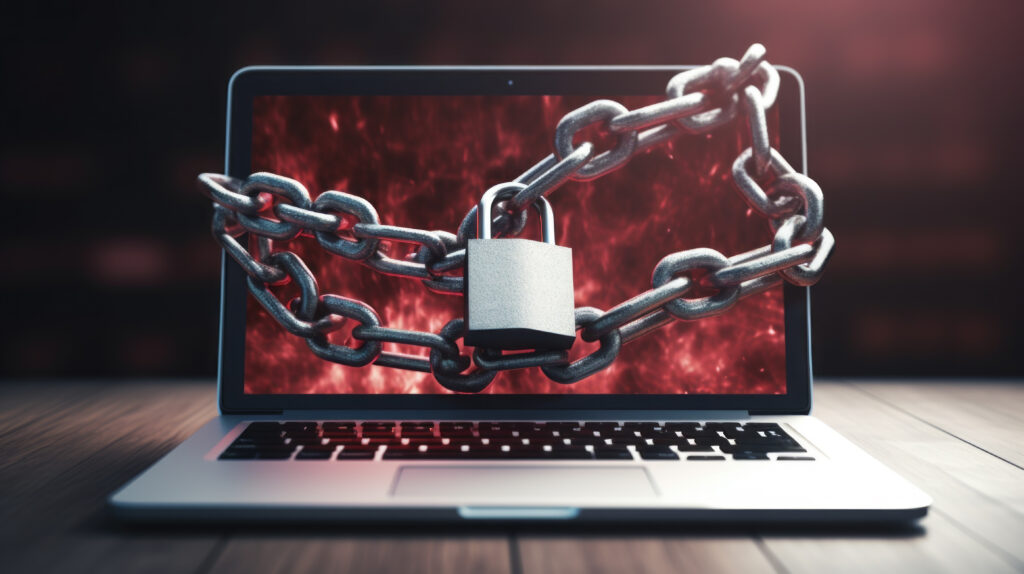The Hidden Cost of Downtime: Why Legal Firms Can’t Afford a Cyber Breach
Most people in the legal profession didn’t choose their career because they enjoy talking about malware or data encryption. Law is about people, trust and detail — not firewalls and phishing emails.
But every modern firm runs on technology, and when that technology stops working, everything else grinds to a halt. For law firms, even a short period of downtime can be devastating.
A cyber breach isn’t just an IT inconvenience. It’s a business interruption that affects every file, client and deadline. The truth is, downtime costs far more than most firms realise, and not just in money.
When Everything Stops
Picture a typical Tuesday in your office. Your team’s handling settlements, one of your solicitors has a court hearing later that morning, and a client’s waiting for urgent documents to be signed off. Then, suddenly, the system freezes.
At first it looks like a small glitch — maybe a quick restart will do it. But then the email system goes down, the shared drive disappears and a strange message pops up demanding payment to “restore access.”
That’s ransomware.
From that moment, your workday is effectively over. You can’t open files, you can’t email clients, and you can’t bill for any of it. Deadlines don’t wait while your systems recover. Neither do your clients’ expectations.
Downtime isn’t just lost time; it’s disruption that reaches every corner of the firm. Files are stuck in limbo, staff are frustrated, and clients start to worry. Even when the systems eventually come back online, it takes days to get back to normal.
The Real Cost of Downtime
It’s easy to focus on the immediate financial hit — the hours of work lost, the cost of IT recovery and the possible ransom payment. But the true cost of a cyber breach runs deeper.
When a legal practice is breached, confidence is the first casualty. Clients trust you with their most sensitive information: personal details, business contracts, financial data and private correspondence. If that data is compromised, even for a moment, the damage to your reputation can be long-lasting.
A law firm’s reputation is built on discretion and reliability. Once that’s shaken, it’s difficult to rebuild. News travels quickly in Scotland’s legal community, and even firms that manage a swift recovery can find themselves facing uncomfortable questions from clients and partners.
Then there’s the emotional toll. A serious breach doesn’t just stop business; it creates stress for staff, partners and clients alike. Partners lose sleep worrying about compliance and client relationships, while IT teams scramble to restore systems. It’s a mess that no one wants to experience twice.
Why Legal Firms Are Attractive Targets
Cybercriminals are opportunists. They know law firms hold valuable information and that legal work is time-sensitive. That combination makes them an ideal target.
Even small and mid-sized practices in Scotland are increasingly on the radar because attackers understand that these firms often don’t have the same level of dedicated IT security as larger organisations.
The most common entry point? Email. A carefully worded message that looks like it’s from a client or the Law Society can trick even a seasoned solicitor into clicking a malicious link. From there, the attackers can lock systems, steal data or lurk quietly in the background for weeks before striking.
And once they’re in, the pressure’s on. Every minute of downtime increases the temptation to pay up and move on. That’s exactly what the attackers are counting on.
Counting the Consequences
Let’s put some rough numbers to the problem.
If ten solicitors are unable to work for a full day, and each normally bills £150 an hour, that’s £12,000 in lost revenue right there. Add the cost of technical recovery, potential data recovery services, overtime for staff catching up and the hours spent communicating with clients about delays.
Then consider the knock-on effects. A delayed court filing. A missed property completion. A client who decides to move their business elsewhere. The cost of a single breach can quickly spiral into tens of thousands of pounds — sometimes more.
But beyond the money, the real loss is momentum. Legal work depends on rhythm: drafting, reviewing, communicating. Once that rhythm is broken, productivity drops and morale follows.
Common Weak Spots We See in Law Firms
After more than thirty years supporting Scottish law firms with IT and security, we’ve spotted a few familiar problems that make practices more vulnerable than they realise:
Old software and hardware that no longer receive security updates.
Weak passwords and missing multi-factor authentication.
Remote access set up during lockdown and never properly reviewed.
Backups that aren’t tested regularly or stored securely.
Staff training that hasn’t been refreshed since before hybrid work became the norm.
Individually, these might not sound dramatic. But together they create the kind of gaps that hackers love. And because everything looks fine on the surface, the risks often go unnoticed until it’s too late.
What a Proper Cybersecurity Approach Looks Like
Protecting a law firm doesn’t mean buying every security product under the sun. It means building a cybersecurity stack that fits how your firm operates.
At Jera IT, we design stacks specifically for the legal sector, using proven technologies that keep sensitive data safe without slowing anyone down.
A strong setup includes:
Advanced endpoint protection on every device
Email filtering that catches phishing attempts before they reach staff
Secure, encrypted backups tested regularly
Managed detection and response for 24/7 monitoring
Clear access controls so only the right people see the right data
Staff awareness training that actually sticks
Together, these layers create resilience. If one system fails, another catches the problem. And because everything’s monitored and tested, recovery is fast and predictable.
Prevention Is Always Cheaper Than Recovery
Think of cybersecurity the same way you think about professional indemnity insurance. You hope never to use it, but you sleep better knowing it’s there. The small amount of time and money spent on proactive protection is a fraction of what a breach will cost.
Regular vulnerability scans, security audits and patch management prevent most incidents before they start. They also give partners peace of mind that the firm meets regulatory expectations under GDPR and the Law Society of Scotland’s cybersecurity guidance.
Cyber threats evolve constantly, but so do the tools to stop them. The firms that stay safe aren’t necessarily the biggest; they’re the ones who take the time to review their security posture and close the gaps.
How to Find Out Where You Stand
Many firms assume their cybersecurity is “good enough” until they get a wake-up call. The truth is, it’s hard to know how exposed you are without an independent check.
That’s why we offer a complimentary cybersecurity audit for Scottish law firms. It’s a straightforward, no-pressure assessment that shows you where your firm is secure and where it could use improvement.
We’ll review your systems, policies and user practices, then provide a clear report outlining your current risk level and practical steps to strengthen it. You’ll know exactly what’s working, what isn’t, and what to prioritise next.
There’s no obligation and no jargon. Just clear insight from people who understand both technology and the legal world.
Final Thoughts
Downtime is more than an inconvenience; it’s a silent drain on your business and your reputation. For legal firms that trade on trust, even a single day of disruption can have long-term consequences.
The good news is that most cyber incidents are preventable. With the right mix of security tools, training and monitoring, you can protect your firm from the inside out and keep your focus where it belongs — on your clients.
If you’re not sure how resilient your firm really is, book your complimentary cybersecurity audit today. You’ll get a clear picture of your current defences and a roadmap to reduce risk before downtime ever becomes an issue.
Because in the legal world, time is money — and every minute your systems stay secure is a minute you can keep serving your clients with confidence.



